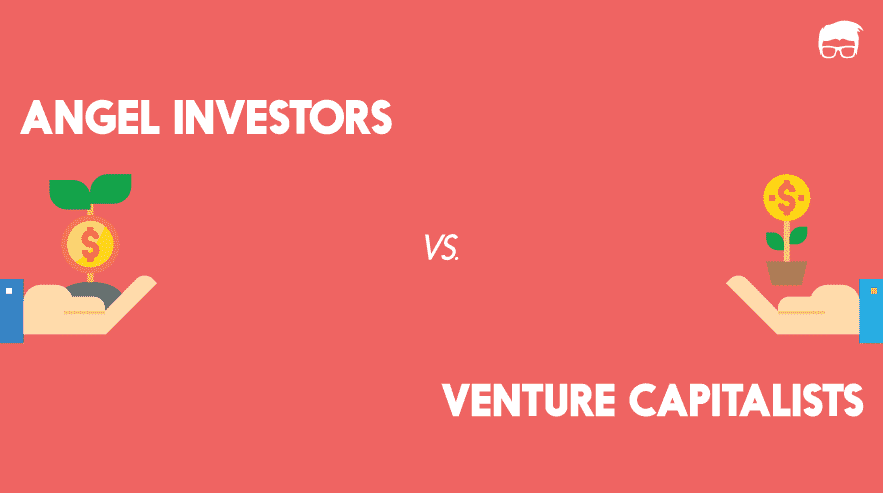When starting a business, an individual has to make many key decisions. A business owner might choose to branch out, establish different departments and ultimately hire employees.
Or they might go solo.
Solopreneurship at its core work on a very simple principle – grind and hustle alone. But what makes it different from entrepreneurship? What dimensions an individual must be aware of before venturing into this field?
Let’s find out.
Who Is A Solopreneur?
A solopreneur is an individual who owns, manages and runs a venture independently without the support of co-founders, partners, and employees, taking on greater than normal financial risks in order to do so.
Solopreneurs prefers to work alone and handle all key business functions. They are responsible to:
- Develop the offering with independent R&D,
- Introduce the offering to the market,
- Advertise, market and build clientele,
- Manage the entire supply chain from sourcing to final delivery to the user, and
- Handle finances of the business
An artist working independently is an example of solopreneur. Their responsibility ranges from building connections, sourcing the required materials, financing, marketing, to delivery of the end product. They may choose to hire independent contractors to achieve each task but all of the business functions are managed by them and them alone.
What Are The Characteristics Of A Solopreneur?
There is no strict criteria to become a solopreneur. All it takes is an individual to convert an idea into an offering without any external help, taking more than normal financial risk.
However, every solopreneur shares some common characteristics:
- Business Ownership: They reside at the highest managerial level and do not report to anyone — they are their own boss. Moreover, they do not have cofounders, partners or shareholders to share profit from the business.
- High Risk Taking: Solopreneurs take more than normal financial and emotional risks as they run the venture alone.
- Versatility: They don’t have a team of specialists to help them in business operations. They are highly versatile individuals that handle a variety of tasks over the course of a day.
- Accountability: They are accountable for everything they or their business does.
- Resourcefulness: A solopreneur usually has limited resources. But because of that, they learn to find ways to get affordable resources to make their business happen.
- Independence: A solopreneur is independent to take the decisions they deem fit for their venture.
- Extroversion: They are the only face of their business. Hence they need to be extrovert to sell the same.
- Strategist: They are the strategist who always think a few steps ahead, carefully planning the future of their venture and their growing role in the venture.
What Are The Types Of Solopreneur?
Solopreneurs are prevalent in every business domain and sector. Innovation and networking have opened up many career opportunities for them, which consequently diversified both their presence and function.
Following are the common types of solopreneurs in business ecosystem:
- Freelancer: They are self-employed individuals that provide an offering. For example, an independent App Developer is a freelancer.
- Professional: They provide independent professional services in the area of their expertise. For example, a Chartered Account is a professional.
- Business Owner: They own and run their business or agency but work alone. For example, an individual owning their graphic designing firm is a Business Owner.
- Consultant: They provide business advice and differ in their area/s of expertise. IT Consultants, Business Consultants, Travel Consultants are a few examples.
- Infopreneur: Infopreneurs collect, organise and sell information as an offering to consumers in niche markets. They can be course creators, bloggers, speakers or coaches.
- Influencer: These individuals use their media presence across platforms like Facebook, Instagram, Twitter, Youtube, etc. to provide an offering to their followers.
There are many other business ideas to become a solo-preneur. A person can become a digital marketer, independent instructor or open up a small flowering shop of all things. New technologies and policies have paved the way more diversity and in coming years, more and more opportunities will be created.
Solopreneur vs Entrepreneur
The terms ‘solopreneur’ and ‘entrepreneur’ are often used interchangeably but they are some crucial differences that an individual must take into account before starting their own business:
Criterion | Solopreneur | Entrepreneur |
|---|---|---|
Definition | Solopreneurs run business alone without support of partners, co-founders and employees. | Entrepreneurs run their own business with the support of their partners, co-founder and employees. |
Business Functions | They manage all aspects of their business from R&D, marketing, supply chain to sales. | They diffuse business responsibilities to employees within different departments. |
Client Interaction | They interact with clients directly. | They interact with clients either directly or assign an employee in their place. |
Business Presence | Their business generally have a local or online presence. | Their business may branch out to other regions with an headquarter and multiple offices, each one operated by different set of employees. |
Funding | Solopreneurs generally fund their business on their own (called bootstrapping). | Entrepreneurs may bootstrap their business or seek financial support from external sources like VC firms, Angel Investors, etc. |
Advantages Of Solopreneurship
Perhaps the biggest advantage of being a solopreneur is 100% business ownership. But that is not the only advantage. Listed below are a few benefits that come with solopreneurship:
- Decision Adaptability: With no strings attached with shareholders or employees, a solopreneur has the flexibility to change and revamp business strategies, operations, target customers, etc.
- Flexible Time: They do not have designated work hours and can allocate work-time as per their convenience.
- Less Financial Liability: Since a solopreneur does not hire employees, they are not liable to pay salaries to anyone in the event of business failure.
- Side Gig: They can run their business as a side gig while having a full-time job.
Disadvantages Of Solopreneurship
Being a solopreneur is not an easy endeavor and comes with its own challenges and shortcomings. Following are the common disadvantages of solopreneurship:
- Hustle every day: Lack of work hours often take a toll on a solopreneur’s daily schedule with work frequently extending to bed-time.
- Work during emergency: When a client demands an offering urgently, a solopreneur either has to lose them by denying their request or make last minute changes to their work schedule to meet the demand.
- Poor financial management: They often mix personal and business finances (money used for the business) and budget poorly.
- No added benefits: They do not receive additional benefits like health insurance, rent allowance, travel allowance, etc., that are otherwise guaranteed by a company.
- High risk: They may not be adept in one more or business functions like marketing, finance, etc., which increases the risk of business failure.
Tips To Become A Successful Solopreneur
Going solo may be an intimidating and challenging venture but not impossible. Following are some tips of becoming a successful solopreneur:
- Understand business: Before deciding to become a solopreneur, it is important that an individual understands all the aspects of business. Understanding the business model, its functions, operations etc. are essential to succeed as a solopreneur.
- Network, network, network: A solopreneur is alone responsible to build their clientele through extensive networking.
- Be Tech-savvy: Technology is solopreneur’s best friend. With technical tools for SEO, Analytics, digital marketing, web designing, etc., a solopreneur can not only build a steady only online presence but also grow their existing business further.
- Automate: By automating human capabilities wherever possible, a solopreneur increases business efficiency, and cuts down both time and costs.
- Collaborate: At times, solopreneurs can collaborate with other like-minded individuals and businesses to gain additional clients and increase presence.
Solo-entrepreneurship is ridden with risks and sacrifices. When venturing into this field, one must not only be passionate and confident but also willing to take risks that at any moment can take it all. But even with all its challenges, it is an exciting field with a plethora of opportunities and scope of learning.
Go On, Tell Us What You Think!
Did we miss something? Come on! Tell us what you think about our article in the comments section.
Data science enthusiast, bibliophile, and an obsessive reader. Always down for a conversation on technology and a cup of coffee.



![How To Start A Business While You Are Still Employed [Actionable Guide] start a business still employed](https://www.feedough.com/wp-content/uploads/2021/04/start-a-business-still-employed.webp)





